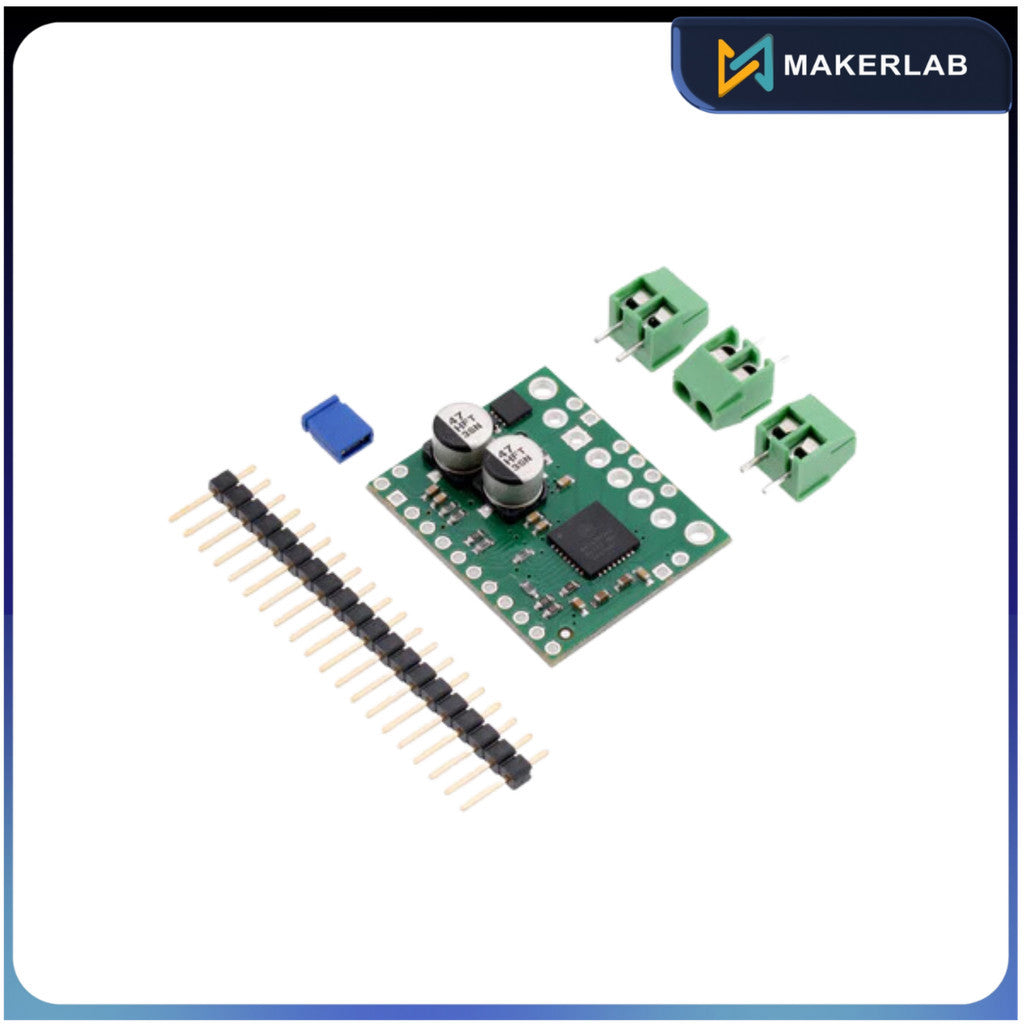SKU:MLE03046
Pololu AMIS-30543 Stepper Motor Driver Carrier | 2970
Couldn't load pickup availability
files/sg-11134201-7rdwe-lyk5f6m7isma4e.jpg
08:40 PM
Product Description
This product is a carrier board or breakout board for ON Semiconductor’s AMIS-30543 Micro-Stepping Motor Driver; we therefore recommend careful reading of the AMIS-30543 datasheet (495k pdf) before using this product. This stepper motor driver lets you control one bipolar stepper motor at up to 3 A output current per coil (see the Power Dissipation Considerations section below for more information). Here are some of the board’s key features:
Standard step and direction control interface
SPI interface for configuring settings (e.g. step mode, current limit, sleep) and reading status registers
Speed and load angle output that can be used for stall detection or closed-loop control of the torque and speed based on the load angle
Eleven different step modes: full-step (uncompensated, compensated 1-phase, or compensated 2-phase), half-step (uncompensated or compensated), 1/4-step, 1/8-step, 1/16-step, 1/32-step, 1/64-step, and 1/128-step
SPI-programmable current control (from 132 mA to 3 A) enables your microcontroller to adjust the peak-current limit on the fly as more or less torque or speed is needed
Intelligent chopping control that automatically selects the correct current decay mode (fast decay or slow decay)
Low-EMI PWM with SPI-selectable voltage slopes
Compatible with 5 V and 3.3 V microcontrollers
Integrated 5V regulator that can be used to supply an external microcontroller
Integrated watchdog function
Open coil detection
Thermal warning indicates when the driver is close to the thermal shutdown temperature
Over-current status and shutdown (short-to-ground and shorted-load protection)
Reverse voltage protection
Note: This driver needs to be enabled and configured through its SPI interface on power up, so your microcontroller must be capable of acting as an SPI master (either with an SPI peripheral or software SPI).











